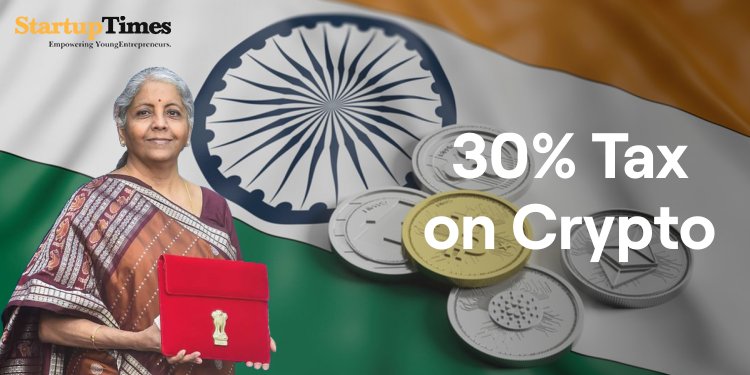All you need to know about the 'crypto tax' in the Union Budget 2022
Nirmala Sitharaman, the Union Finance Minister, declared on Tuesday that revenue from digital asset transfers will be taxed at a rate of 30%, with no deductions or exemptions.

Nirmala Sitharaman, the Union Finance Minister, declared on Tuesday that revenue from digital asset transfers will be taxed at a rate of 30%, with no deductions or exemptions. (at the receiver's end) This is described as a 'crypto tax'. She also stated that in the coming fiscal year, the Reserve Bank of India (RBI) will release a digital rupee.
In her Budget address, Sitharaman stated that there has been a "phenomenal surge in transactions in virtual digital assets," which has necessitated the creation of a separate tax framework. According to experts, the 30% tax rate on bitcoin sales proceeds is comparable to the tax rate on lottery, game show, and puzzle profits.
Here's all you need to know about Sitharaman's 'crypto tax,' which she revealed in her Budget speech:
- Except for the cost of purchase, no deduction in respect of any expenditure or allowance shall be permitted for computing such income. Furthermore, any loss incurred as a result of the transfer of a virtual digital asset cannot be offset against any other revenue.
- "In order to record transaction information, I also suggest imposing a 1% TDS on payments made in connection with the transfer of virtual digital assets beyond a monetary level."
- It is also recommended that a gift of a virtual digital asset be taxed in the recipient's hands.
- Following the ratification of the Union Budget in Parliament, the tax plans will take effect on April 1.
- She also stated that in 2022-23, the RBI will introduce a 'Digital Rupee' based on blockchain technology.
- According to news agency PTI, Nangia Andersen India Chairman Rakesh Nangia stated that the government has "walked the talk" on a stable and predictable tax environment, and that the transfer of virtual digital assets has been brought into the taxation scope.
- The finance bill 2022 defines a virtual digital asset as any information, code, number, or token (other than Indian or foreign money) created using cryptographic techniques or otherwise, by whatever name named, that provides a digital representation of value stored or exchanged electronically.













